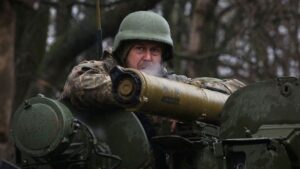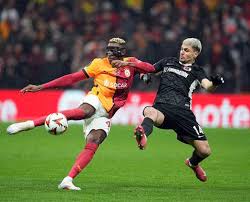By Alex Nwahiri
As both Ukraine and Russian forces are repositioning and reorganizing their military formations for the expected military showdown at the Eastern Region of Ukraine, the European Union is intensifying the war on the economic front by voting to slam an embargo on the purchase of Russian natural gas and oil.
Already the EU has started drafting the proposal for the implementation of the embargo as its latest response to the revelations of Russian atrocities in Ukraine. The embargo would most likely be introduced in a gradual way, similar to the planned Russian coal embargo, to kick off in August, to give importers time to find alternative supplies.
This move by the European Union is very significant because Russia makes more than one billion dollars a day from oil and natural gas sales to Europe alone totaling about $370 billion annually and cutting off this humongous amount of revenue from Russia through oil and natural gas embargo would surely hurt the Russian economy because this commodity is the main life line of the Russian economy.
Despite sweeping sanctions on Russia, European Union has done little to cut off Russian natural gas and oil because of its heavy reliance on the two products. Europe gets its 40% of its natural gas and 30% of its oil from Russia.
Russian natural gas has continued to flow through major pipelines in Europe despite the pressure on the EU to cut it off.
Russia has the world’s largest natural gas and is the third largest oil producer accounting for about 12% of global Oil production. European Union countries are very vulnerable to any sudden cut off of Russian oil but have worked out a road map for gradual and phased reduction that would reduce the EU demand for Russian oil and natural gas by two thirds before the end of the year.
Under this scheme, the EU countries are diversifying supplies and speeding the roll out of renewable gases.
The Ukrainian president Volodymir Zelensky has repeatedly called for a full EU embargo on Russian oil and natural gas pointing out that those buying these Russian products were doing business with blood money.
Meanwhile heavy fighting continues in the southern and eastern Donbas region of Ukraine as Russian forces are pressing to capture Mariupol, the main Port of the Donbas region, a region of two provinces which Russia is demanding that they be ceded to the seperatists.
Russia also hit parts of the Ukrainian capital Kyiv today Saturday and its surrounding cities in retaliation for the sinking of the Russian Black sea fleet’s flag ship Moskva. Russia’s used air raids and long range missiles to hit kyiv, Liviv and other major cities on Saturday killing civilians and destroying residential buildings and public utilities and health facilities. Russia hits more targets across Ukraine in retaliation for the sinking of its Black sea flagship Moskva Alex Nwahiri.
Russian defense ministry announced today that it hit hundreds of military targets in Ukraine on Sunday, destroying command posts with long range missiles. The announcement further said that Russian has destroyed 16 Ukranian military facilities in the Kharkiv, Zaporizhzhia, Donetsk and Dinipropetrovsk regions and in the Port of Mykolayiv, in the south and east of the country.
According to the release, Russian air force also launched strikes against 108 areas where Ukranian forces were concentrated and Russian artillery struck a total of 315 Ukrainian military targets in the overnight operations.
Driven back by Ukrainian resistance in the north, the Russian military has focused its offensive in the two eastern provinces known as the Donbas, while launching long- distance strikes at other targets, including the capital of Ukraine, Kyiv.
Russia is still battling to take control of the Ukrainian port city of Mariupol which it has besieged for weeks and which would be a huge strategic prize, linking territories held by pro-Russian separatists in the east with the Crimea peninsula seized by Russia in 2014.
However the Ukrainian authorities acknowledged the Russian brutal missiles attack but regretted that Russia doesn’t distinquish between military and civilian targets and most of the missiles hit civilian population and residential buildings killing seven people.
In another development, Vladimir Putin has written a letter to the Israeli prime minister Bennett Naftali demanding that Israel hand over to Russia the control of the contested church property in the old city of Jerusalem.
Russia has for years been seeking to secure the Alexander’s Courtyard church compound but a recent court decision in Israel rejected and nullified Russia’s claim over the property, setting the stage for the present diplomatic row.
The Alexander courtyard church complex and compound are located near the church of the holy sepulcher in Jerusalem.
The letter indicates the importance that Moscow attaches to the matter and Israeli officials are worried that the issue could exacerbate tensions between Israel and Russia already on the rise over Russia invasion of Ukraine.
Israel has tried to balance good ties with Russia needed for its security operations in Syria against growing international alarm over the continued Russian atrocities and genocide in Ukraine.





